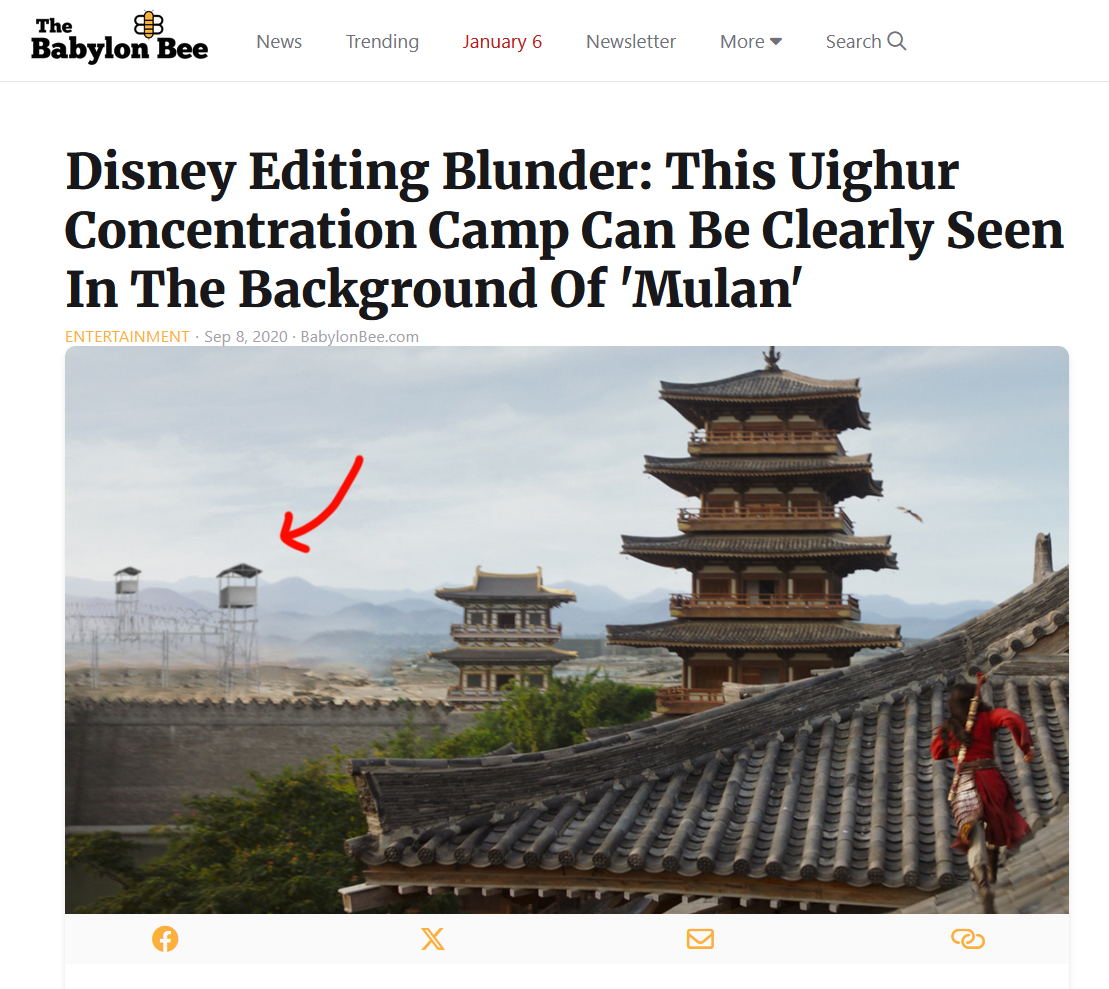HOLLYWOOD, INTERRUPTED: China Mulling Ban on Hollywood Film Releases in Response to Trump Tariffs (Report).
The U.S. film industry so far has escaped direct retaliation from countries hit by President Donald Trump‘s globe-spanning tariffs, thanks to theatrical film releases and streaming platforms being categorized as services rather than physical goods. But Hollywood’s luck in China, the world’s second-largest film market, could soon run out, according to statements issued Tuesday by two influential public figures in the country.
With trade relations between Washington and Beijing spiraling, two widely followed Chinese bloggers posted an identical set of measures that local authorities are said to be mulling in response to Trump’s 54 percent tariffs on all Chinese goods, which the president vowed to increase to 104 percent if Beijing didn’t back down from a pledge to match the current U.S. tariff rate. The list of mooted moves includes “reducing or banning the import of U.S. films,” as well as increasing tariffs on U.S. agricultural goods and U.S. services, among other countermeasures.
The potential plans were shared simultaneously over local social media by Liu Hong, a senior editor at the state-backed Xinhua News Agency, and Ren Yi, the influential and widely followed grandson of Ren Zhongyi, former Communist Party chief of Guangdong Province. Both figures attributed the outlined proposals to unnamed sources familiar with authorities’ planning. Bloomberg News was the first Western outlet to cover their statements.
As Christian Toto wrote in 2021: Hollywood Sold Its Soul to China … Now What?
Studios drooled over China’s vast theatrical marketplace, with millions of movie goers eager to watch American popcorn franchises like “Fast & Furious.” And they did just that while filmmakers followed the country’s strict rules at every step.
- Adding Chinese characters to existing stories
- Shooting product placement scenes for Chinese theatrical editions
- Avoiding stories that depict China in a negative light
- Allowing films to be sliced and diced to appease Chinese censors
What did Hollywood get in return? Billions in extra revenue, that’s what. Plus, films that flopped stateside, like the “Tomb Raider” reboot, made enough coin in China to stave off financial doom.
The Alicia Vikander film earned $58 million in the U.S. and $78 million in China.
Meanwhile, the Hollywood elite ignored China’s human rights violations at every turn. Celebrities railed against Georgia’s strict abortion legislation but looked the other way as China operated concentration camps for minority Muslims.
On occasion, Hollywood didn’t even bother looking the other way: Disney under fire for ‘Mulan’ credits that thank Chinese groups linked to detention camps.
Disney is facing backlash after the final credits for its latest film “Mulan” thanked government entities in Xinjiang, the province where Muslims have faced human rights abuses.
The film had already generated controversy after its lead actress, Liu Yifei, recently expressed support for police crackdowns in Hong Kong, spurring talks of boycotts on social media.
That sentiment only increased after it came to light that Disney filmed scenes for the “Mulan” movie in China’s Xinjiang province, where Beijing is accused of detaining more than 1 million Uighur Muslims.
After releasing “Mulan” on Disney+, eagle-eyed viewers noticed a “special thanks” in the film’s end credits that named eight government entities in Xinjiang, including the public security bureau in the city of Turpan, where the country is allegedly operating more than a dozen “reeducation” camps.
Or as America’s Newspaper of Record noted in 2020:

